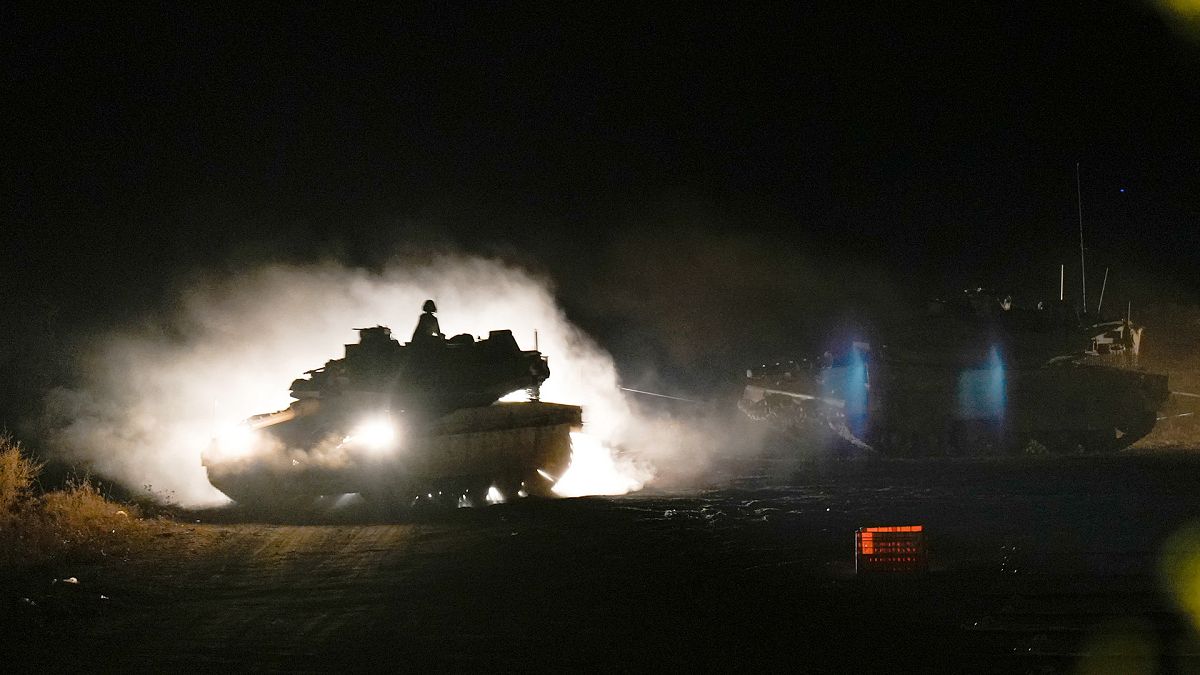The crisis in the Middle East continues to escalate, with tensions rising between Israel and Lebanon. Diplomatic efforts to ease tensions have so far failed to produce concrete results, leading to a ground incursion by Israel into Lebanon. This has resulted in clashes with Hezbollah militants, deadly airstrikes, and significant casualties on both sides. The situation has raised concerns globally, with experts warning of a potential wider regional war with massive implications for Europe and the rest of the world.
Prof Luigi Narbone, a former EU ambassador to Saudi Arabia and Gulf countries, has highlighted the EU’s divided stance on the conflict as a significant issue. The bloc’s member states have been criticized for adopting double standards in their response to global conflicts. While the G7 leaders have called for de-escalation and a decrease in tensions along the Israel-Lebanon border, the situation remains precarious. Narbone warns that the lack of stability in the region could impact Russia’s role in Syria and lead to economic repercussions. This instability is also directly linked to migration flows, as people flee war-hit areas in the Middle East.
The Italian government, which holds the presidency of the G7, is seeking to strengthen the United Nations Interim Force in Lebanon (UNIFIL)’s mission mandate and extend its powers and responsibilities. The UNIFIL has vowed to remain in place despite the escalating conflict and has emphasized the violation of Lebanese sovereignty by any crossing into Lebanon. The ongoing crisis has led to a humanitarian catastrophe in Lebanon, with millions of people displaced and thousands dead. The situation is dire, and urgent action is needed to prevent further escalation and loss of life.
The crisis in the Middle East highlights the complex geopolitical dynamics at play in the region. The conflict between Israel and Lebanon is just one aspect of the broader tensions in the Middle East, with multiple actors involved and competing interests at stake. The international community, especially the EU and the G7, faces the challenge of navigating these tensions and finding a path towards peace and stability in the region. The situation is further complicated by global power struggles, economic interests, and humanitarian concerns, making it crucial for diplomatic efforts to intensify and for concrete actions to be taken to de-escalate the crisis.
As the conflict in the Middle East continues to worsen, the need for a diplomatic solution becomes increasingly urgent. The international community must work together to address the root causes of the conflict and find a way to bring all parties to the negotiating table. The humanitarian toll of the crisis is mounting, with millions of people displaced and thousands dead. It is essential for the EU, the G7, and other international actors to step up their efforts to resolve the crisis and prevent further escalation. The stakes are high, and failure to act decisively could have far-reaching consequences for the region and the world at large.
In conclusion, the crisis in the Middle East underscores the importance of global cooperation and diplomatic engagement in resolving conflicts. The situation between Israel and Lebanon is a stark reminder of the fragility of peace in the region and the need for all parties to work towards a sustainable solution. The EU, the G7, and other international actors must prioritize de-escalation, dialogue, and humanitarian assistance to address the crisis effectively. The consequences of inaction are dire, with the potential for a wider regional war and significant implications for global stability. It is crucial for the international community to unite in support of peace and security in the Middle East.


























